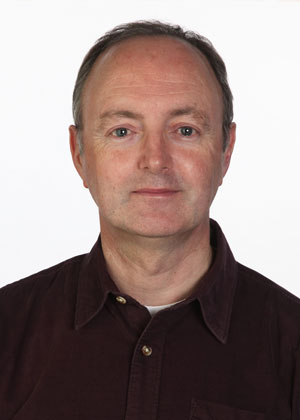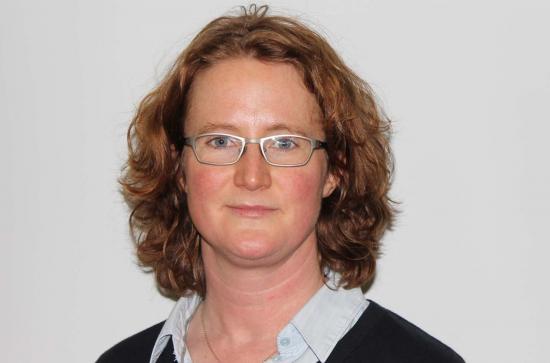On International Day of Education we highlight how our education system is society’s greatest asset in tackling the world’s biggest challenge, climate change.
The 2020 UN Celebration positions education and the learning it enables as humanity’s greatest renewable resource and reaffirms the role of education as a fundamental right and a public good. A key part of the UN theme for this year is education in preserving the planet. With increasing urgency, scientists remind us that the human race is at risk without significant changes to current development patterns, which cause environmental degradation, rapid biodiversity loss and climate change.
The Environmental Protection Agency of Ireland along with Irish universities and other third-level institutions co-fund PhD scholarships to students who propose innovative research to identify challenges, inform policy and develop solutions to climate change and sustainability.
“Proposed scholarships should provide evidence to identify pressures, inform policy and develop solutions relevant to the EPA Research Strategy 2014-2020; National environmental policy context; as well as to the implementation of the UN Sustainable Development Goals. We very much look forward to seeing the researchers’ findings and their solutions to pressing environmental issues and will ensure that they are widely shared for implementation. The outputs from these projects will provide the foundation and evidence base for credible environmental decision-making into the future. This funding also enables the building of research capacity in environmental fields, contributing to establishing a strong research and innovation base in Ireland.” – Alice Wemaere, EPA Research Manager
The environment and sustainability have become a key priority for Irish universities in terms of policy, practice and most importantly teaching and learning, to equip students with the skills to create a more eco-conscience society and future for Ireland.
“The university sector plays a critical role in helping to bring sustainable activities into mainstream society. This encompasses how those institutions are managed, how they engage with their local communities, what they teach their students and their adaptability to new ways of thinking. Universities, unlike other organisations, have the opportunity in educating future generations and driving research forward under the sustainability agenda.”- Lisa Keating, IUA Director of Research.
Some example of successful projects are…
Incorporating urban nature-based solutions into governance, policy and planning in Ireland- Dr. Marcus Collier, Trinity College Dublin

Nature-based solutions are inspired and supported by nature that simultaneously provide environmental, social and economic benefits and help to build resilience, especially in an urbanising society and in the face of increasing climate pressure. These solutions bring more nature and natural features and processes into cities through locally adapted, resource-efficient and systemic interventions. Nature-based solutions can plan an important role in sequestering carbon, filtering air pollutants from the atmosphere, and enhancing water storage capacity in urban watersheds, thus providing opportunities to develop new mitigation and adaptation strategies that lead to behavioural change and sustainable urban communities.
My EPA co-funded scholarship project will create a platform for supporting policy-makers who are tasked with implementing the SDGs, as well as co-produce an engagement facility for planners, designers, researchers and multiple stakeholders. Cities in Ireland have been very slow to recognise and adopt a nature-based solution approach and rely on green infrastructure and ecosystem service data that are limited in the practical applications. They now run the risk of being left behind the global push for building adaptive capacity in Irish cities and harnessing the collaborative strength of social institutions.
“Co-funding from the EPA matched with my Horizon 2020 project has enabled me to introduce into Ireland, for the first time, the nature-based solution approach by creating a database for planners and policy-makers”
Survival of mobile antibiotic resistance in water– Dr Fiona Walsh, Maynooth University

The project looks at the mobile pieces of DNA containing antibiotic resistance genes that are coming out of our wastewater treatment plants (WWTPs). A previous EU project that we were involved in showed that antibiotic resistant bacteria are leaving all WWTPs across the EU. We are now looking at the details of what types of genes are present. Plasmids are mobile pieces of DNA that can move antibiotic resistance genes between bacteria. We are firstly analysing the wide variety of resistance genes present on plasmids from the WWTP effluents using cutting edge sequencing technology and then we will see which of these plasmids are the best at surviving in the receiving water. This is the first such study in the world.
It’s important to know what can survive in the water as these specific plasmids are the ones most likely to transfer into an animal or onto a plant or into a human swimming in the water. We need to know what our actions, even the treated waste coming out of WWTPs, are doing to the environment and ultimately our health and the health of farm animals that we eat. There are no government guidelines or conditions required for any country in the world to measure this and control it.
The EPA had funded the Irish part of the EU project. The call for the co-fund PhD is made every year by the EPA and is open to all academics. I applied for funding and the EPA saw the merit and need for this project. The other half of the funding was provided by Maynooth University. As the EPA funds 50% the Maynooth University funding is also vital for this project to function.
“Antibiotic resistance in the environment is the least known aspect of antibiotic resistance. Research is needed in order to educate ourselves, governments nationally and at EU levels and the regulators like the EPA on what we are doing to the environment and how these actions will affect the health of the water and all plants, animals and humans that interact with the water.”
Ends.
For more information contact:
Dr Marcus Collier, Assistant Professor Trinity College Dublin 01 896 1641
Dr Fiona Walsh, Assistant Professor Maynooth University 01 474 7246
Lisa Keating, IUA Director of Research and Innovation 01 6764948
Lia O’Sullivan, IUA Head of Communications 01 6764948
Notes
These scholarships offer the following benefits…
- 48-month PhDs (indicative budget of €96,000);
- Limited to new and innovative projects;
- Co-funded by an Irish host research institution on a 50:50 basis;
- EPA is consulted in the selection process of the candidate (i.e. interview panel)
- All co-funded PhDs would have to adhere to the EPA’s funding rules and reporting requirements.
Selection criteria covers the following points:
- Proposal should be for innovative research aiming at supporting environmental policy in Ireland.
- The proposed Scholarship should provide evidence to identify pressures, inform policy and develop solutions.
- The proposed scholarship should be relevant to the:
- EPA Research Strategy 2014-2020;
- National environmental policy context; and
- Implementation of the UN Sustainable Development Goals.